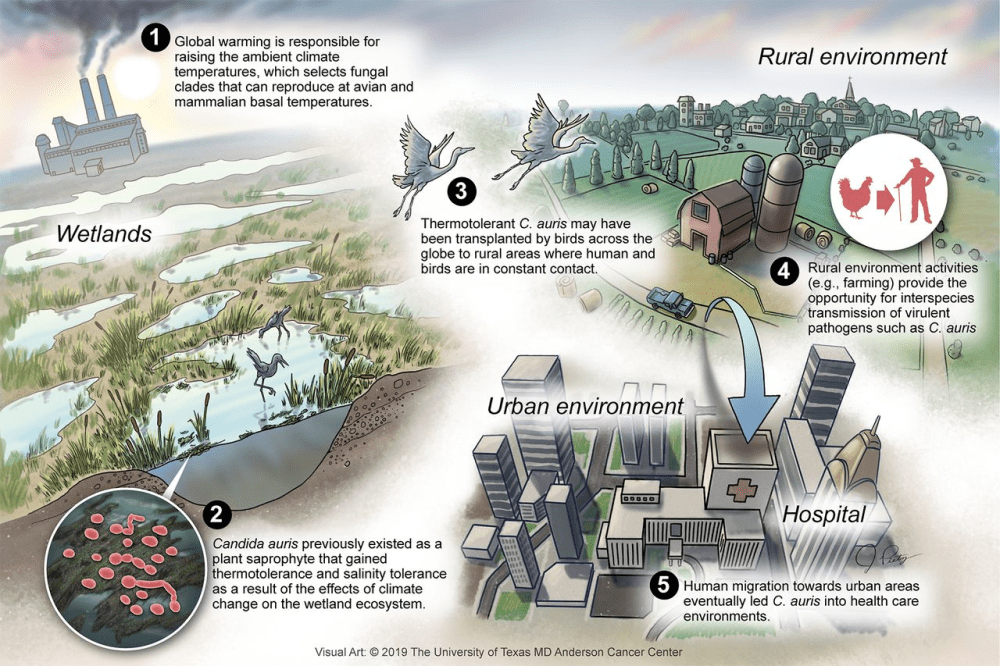A deadly fungus is spreading in the US, according to new research that found the cases of Candida auris rose drastically between 2019 and 2021. Classed by the Centers for Disease Control and Prevention (CDC) as an “urgent threat“, C. auris can cause potentially life-threatening infections that don’t respond well to the current first-line therapy.
A sharp jump in cases like this indicates that the pathogen is seeing increased transmission. CDC researchers were able to identify the trend using national surveillance data on clinical C. auris cases reported to state and local health departments.
It found that clinical cases of the fungal contagion jumped by a whopping 95 percent in 2021 compared to a 2019 increase in cases of just 44 percent. The timing of the spike may be linked to the COVID-19 pandemic (that may have all started with raccoon dogs) as increased pressure on healthcare providers and equipment shortages meant people went without treatment.
The increased transmission is accompanied by an alarming increase in treatment-resistant cases of C. auris infection, finding three times as many in 2021 compared to the previous two years. Echinocandins are typically the first-line therapy for invasive Candida infections like C. auris, but the data shows more and more cases aren’t responding to the treatment.
C. auris was first described in 2009 in Japan, before spreading to South Korea, Asia, Europe, and across the US. The main challenge posed by the yeast variety is that it’s difficult to identify, so can remain undetected in a host for several months.
While there was a 44 to 95 percent jump in cases in a clinical setting, screening efforts also showed dramatic increases indicating there are more people unknowingly walking around with C. auris. Most transmission of C. auris occurs in healthcare settings where you have many long-term residents, some of whom may be dependent on mechanical ventilators.

To add to the concerning data, C. auris was reported to be the first example of a new fungal disease emerging from climate change after emerging on three continents. C. auris became one of just a few hundred fungi capable of infecting humans, suggesting it’s overcome one of fungi’s two key weaknesses: the human immune response and body temperature.
As higher global temperatures select for heat-tolerant fungal clades, they may be able to skip into humans by first adapting to infect comparatively cooler avian hosts. The next logical step would be the coldest parts of humans (like the ear, where it was first identified), but with time and evolution who knows where it could spread to next.
A deadly and highly contagious fungal infection echoes The Last Of Us. C. auris might not lead to zombies and clickers, but with infections that range from asymptomatic to fatal illness, it’s easy to see why increased transmission has the CDC concerned.
The study is published in the Annals of Internal Medicine.
Source Link: Deadly Fungal Contagion Dubbed "Urgent Threat" By CDC Is Becoming More Infectious